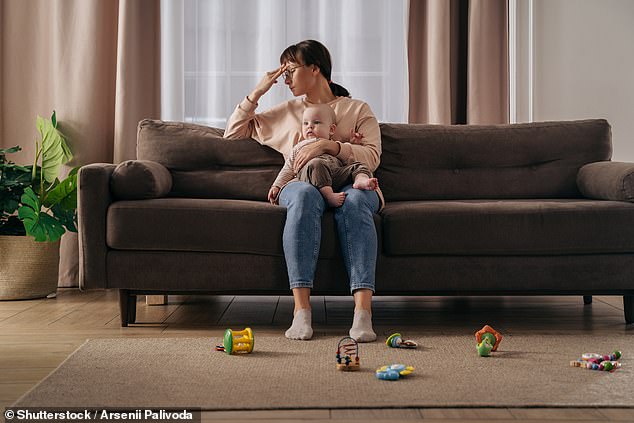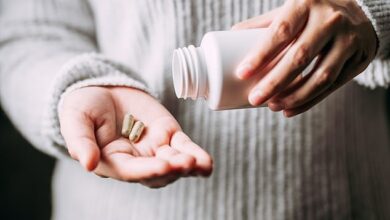Mothers can reduce the risk of postpartum depression by exercising, but for HOW long?





New mothers should go for walks in the park to reduce their chances of developing the ‘baby blues’, a study suggests.
Finding the time to get about an hour of light to moderate exercise a week can reduce your risk of postpartum depression by almost half.
It could also help reduce symptoms in new mothers who suffer from depression or anxiety, researchers found.
Depression and anxiety in mothers are relatively common after childbirth, often prompted by major physical and emotional changes associated with pregnancy and childbirth.
It can lead to reduced self-care and compromise caregiving and the bond between mother and baby, which in turn can affect the child’s cognitive, emotional and social development.

Finding time to do about an hour of light to moderate exercise a week could cut your risk of postpartum depression by almost half (stock photo)

Depression and anxiety in mothers are relatively common after childbirth, often prompted by major physical and emotional changes (stock photo)
University of Alberta, Canada, researchers examined 35 studies involving more than 4,000 women from 14 different countries.
They found that exercise of at least 80 minutes per week can dramatically reduce the risk or ease symptoms in people who suffer.
Noticing birth experiences can vary greatly, experts said this must be balanced with their recovery.
They suggest resuming exercise with “gentle” walks, which they can do with their babies, and then increasing to “moderate” activities such as brisk walking or water aerobics when they are ready.
This moderate physical activity can include brisk walking, water aerobics, stationary cycling or resistance training, according to a team of academics in Canada.
Starting exercise before 12 weeks after birth was linked to a greater reduction in depressive symptoms than starting later, according to findings published in the British Journal of Sports Medicine.
And the greater the training volume, the greater the reduction in symptom severity, the study found.
To reap the benefits of exercise, women should do at least 80 minutes of moderate-intensity exercise each week and be moderately active on at least four out of seven days.
Starting exercise before 12 weeks after birth was linked to a greater reduction in depressive symptoms than starting later (stock photo)

Exercising for at least 80 minutes every week can dramatically reduce the risk or ease symptoms in people who suffer from it (stock photo)
According to the latest MBRRACE-UK report, around 275 women in Britain died during pregnancy or in the six weeks afterwards in 2020-2022.
And 31 of these deaths were attributed to mental illness.
Lead author Professor Margie Davenport, from the University of Alberta, said: ‘Although historical recommendations suggest waiting six weeks before starting moderate to vigorous exercise, more recent work has suggested that early mobilization and integration of light-intensity physical activity, such as walking quietly can facilitate recovery after childbirth.’
‘Once (the mother) has recovered from childbirth, taking short gentle walks is encouraged.
“Walking is a great way to get exercise, and it’s something you can do with your baby.”
She said it is important to pay attention to symptoms such as poor recovery after exercise, which may mean exercise is progressing too quickly.
She added: ‘Everyone’s ideal start time will be different, balancing the need to recover and heal after giving birth with the willingness to become physically active to reap both physical and mental health benefits.’




